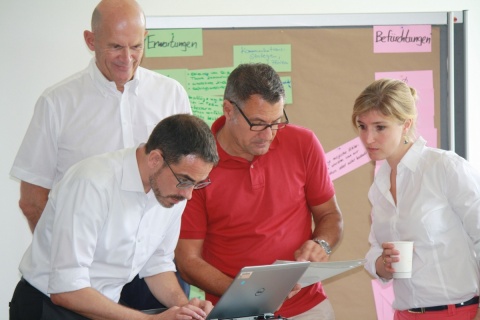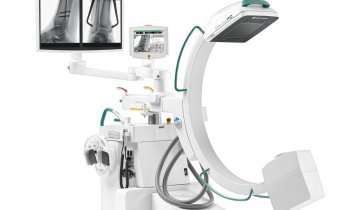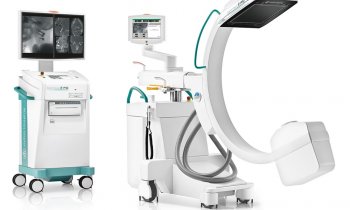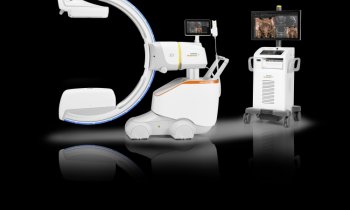Article • Human Resources
Physicians will learn assertiveness
Most accidents result from ‘the human factor’ – long acknowledged in aviation. Thus all crew members receive regular safety training to help prevent errors on board and on the ground.
When you are new in the team, when you have the feeling the others know more and when you are a bit scared to make a fool of yourself, speaking up can be really difficult.
Martin Egerth
Now experts at the German Society for Orthopaedics and Trauma (DGOU) with those from Lufthansa Flight Training have developed a similar training programme for physicians. This Interpersonal Competence Training was presented in Berlin during German congress for orthopaedics and trauma surgery (DKOU) in Ocotber 2015. In the 1970s aviation researchers found out that roughly 70-80% of all aviation accidents were caused by human error. Thus specialised training formats were introduced to help prevent errors both by on-board crew members and air traffic controllers on the ground. An important component of this training is Crew Resource Management (CRM). this aims to build an extremely important though often neglected factor: social skills. That is not so much about being polite, but being assertive in critical situations.
Neither a comparable research discipline nor a comparable training approach exists in healthcare, despite how much more difficult it is for physicians to detect critical events or incorrect treatments – not to mention identifying their causes. Obviously errors do happen. According to international estimates each year approximately one per million hospital patients die due to avoidable treatment errors. With roughly 19.1 million patients admitted to German hospitals in 2014 that would translate to 19,100 patients who died from avoidable treatment errors.
The fact, as such, is not new. Then why have leading members of the German Society for Orthopaedics and Trauma (DGOU) decide now to approach experts at Lufthansa Flight Training GmbH to develop a CRM-like training for physicians? ‘It was an idea whose time had come,’ said Professor Bertil Bouillon, Director of the Clinic for Orthopaedics, Trauma Surgery and Sports Traumatology in Cologne-Merheim, Germany, who is also a certified trainer for the new programme. He underlined that economic pressure in hospitals increases physicians’ workload – which in turn increases stress and the error risk. In the end, however, it was the individuals’ dedication that made the new training format happen.

What is unique about the interpersonal competence (IC) training is that it was developed jointly by physicians and safety trainers, explained Martin Egerth of Lufthansa Flight Training. A certified CRM trainer he is one of the main architects of the new course format. Egerth sees many parallels between the work environment in aviation and in hospital care: a strict hierarchy, much routine work, complex situations, high stress levels and the need for effective communication.
For Egerth, who seized the chance to gain an in-depth look behind the scenes of a hospital, there is one particularly important skill: assertiveness. What is known in aviation is that airplane crashes usually happen after a chain of five to six errors. If this chain can be broken, an accident can be avoided. However, that requires errors to be recognised early and corrected immediately. Whoever is on the scene needs to speak up as soon as he or she notices an error. ‘But when you are new in the team, when you have the feeling the others know more and when you are a bit scared to make a fool of yourself, speaking up can be really difficult,’ Egerth says. Therefore assertiveness is the core social skill that is being looked at in IC training.
The new programme was designed for junior physicians, but an extension up the entire clinical hierarchy is planned. In the long run other disciplines might be included because, right now, IC training targets only orthopaedic and trauma surgeons. Anaesthetists as well as nurses, for example, would benefit from such training, in line with the core idea of safety training in aviation: a team where everyone works hand in glove – the best way to avoid errors and break the error chain.
19.05.2016











